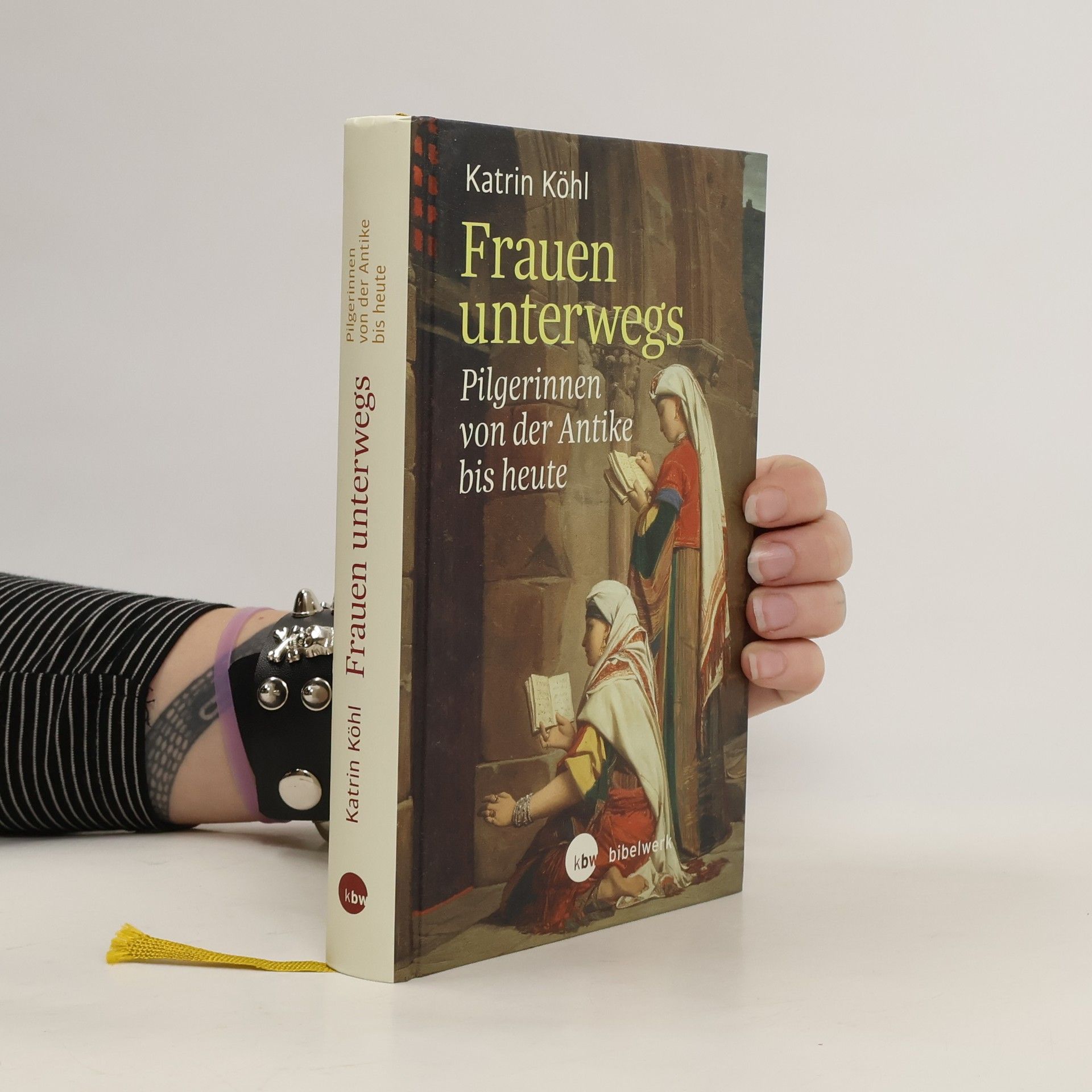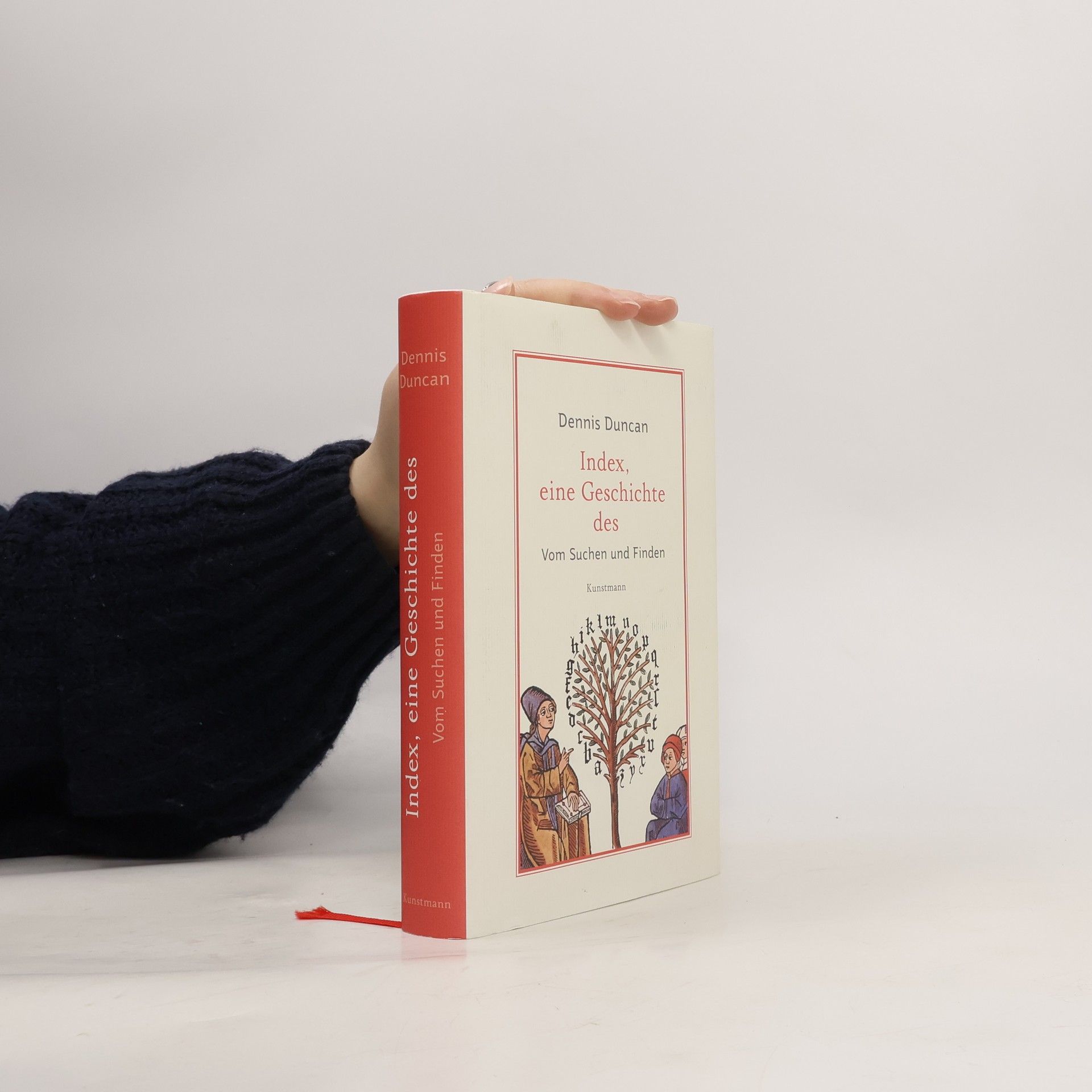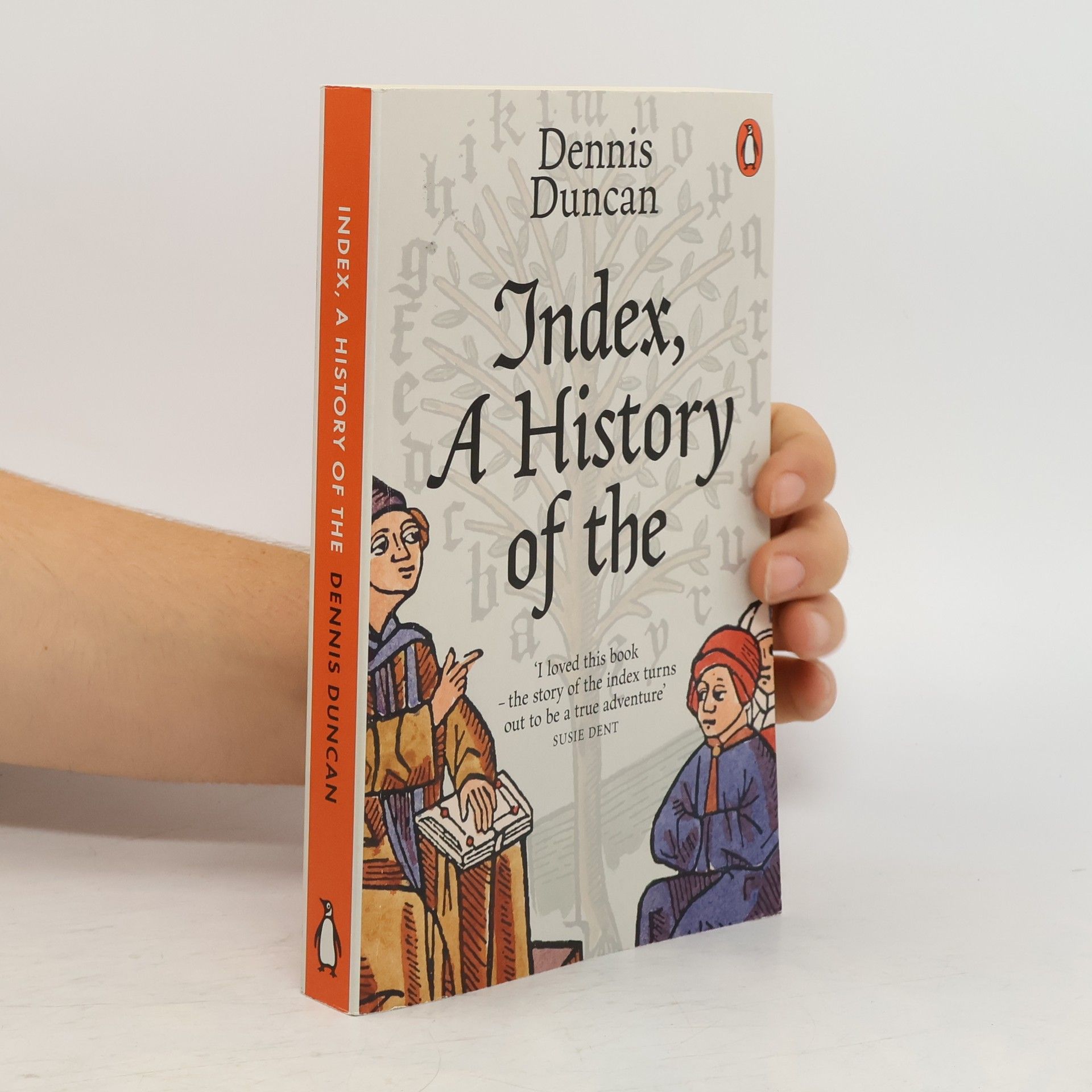Index, A History of the
- 340 pages
- 12 hours of reading
A story of ambition, obsession and alphabetical order Most of us give little thought to the back of the book - it's just where you go to look things up. But here, hiding in plain sight, is an unlikely realm of ambition and obsession, sparring and politicking, pleasure and play. Here we might find Butchers, to be avoided, or Cows that sh-te Fire, or even catch Calvin in his chamber with a Nonne. This is the secret world of the index- an unsung but extraordinary everyday tool, with an illustrious but little-known past. Here, for the first time, its story is told. Charting its curious path from the monasteries and universities of thirteenth-century Europe to Silicon Valley in the twenty-first, Dennis Duncan reveals how the index has saved heretics from the stake, kept politicians from high office and made us all into the readers we are today. We follow it through German print shops and Enlightenment coffee houses, novelists' living rooms and university laboratories, encountering emperors and popes, philosophers and prime ministers, poets, librarians and - of course - indexers along the way. Revealing its vast role in our evolving literary and intellectual culture, Duncan shows that, for all our anxieties about the Age of Search, we are all index-rakers at heart, and we have been for eight hundred years.




